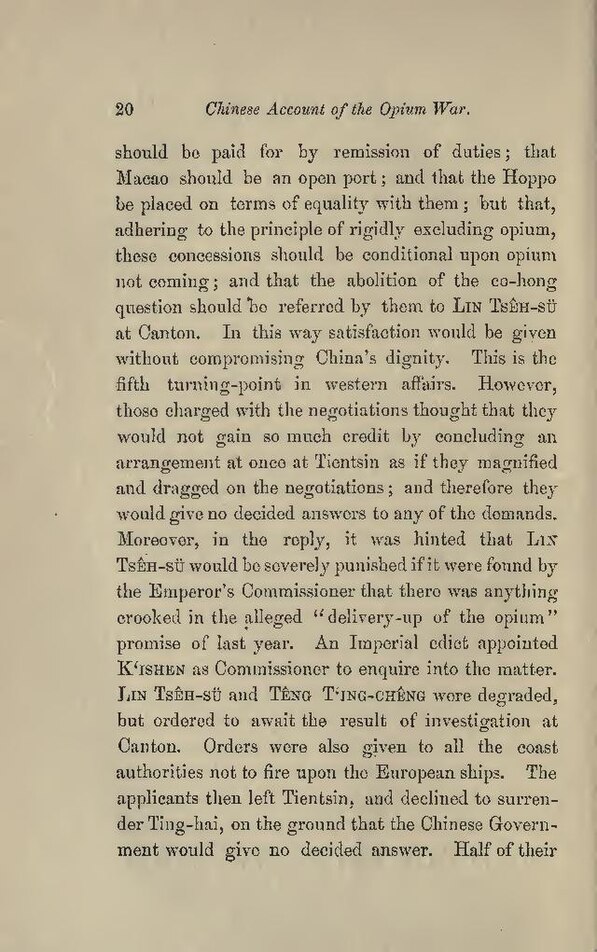should be paid for by remission of duties; that Macao should be an open port; and that the Hoppo be placed on terms of equality with them; but that, adhering to the principle of rigidly excluding opium, these concessions should be conditional upon opium not coming; and that the abolition of the co-hong question should be referred by them to Lin Tsêh-sü at Canton. In this way satisfaction would be given without compromising China's dignity. This is the fifth turning-point in western affairs. However, those charged with the negotiations thought that they would not gain so much credit by concluding an arrangement at once at Tientsin as if they magnified and dragged on the negotiations; and therefore they would give no decided answers to any of the demands. Moreover, in the reply, it was hinted that Lin Tsêh-sü would be severely punished if it were found by the Emperor's Commissioner that there was anything crooked in the alleged "delivery-up of the opium" promise of last year. An Imperial edict appointed K‘ishen as Commissioner to enquire into the matter. Lin Tsêh-sü and Têng T‘ing-chêng were degraded, but ordered to await the result of investigation at Canton. Orders were also given to all the coast authorities not to fire upon the European ships. The applicants then left Tientsin, and declined to surrender Ting-hai, on the ground that the Chinese Government would give no decided answer. Half of their
Page:Chinese account of the Opium war (IA chineseaccountof00parkrich).pdf/36
